3 Nutritionists Share the No. 1 Ultra-Processed Food They Won’t Eat

One hallmark of a healthy diet is eating plenty of nutrient-dense and nutritionally diverse whole foods. Not only does this mean stacking your plate with a balance of lean proteins, fibrous plants, healthy fats, and complex carbohydrates, but it also means skipping processed foods that are modified with unhealthy ingredients. Foods that fall into this latter category are widely known as ultra-processed foods (UPFs).
“They most likely have many added ingredients such as sugar, salt, fat, and artificial colors or preservatives. Ultra-processed foods are made mostly from substances extracted from foods, such as fats, starches, added sugars, and hydrogenated fats. They may also contain additives like artificial colors and flavors or stabilizers,” explains Harvard Health Publishing.
While all processed foods are generally best avoided, nutritionists say that there are a few that stand out as being among the worst of the worst. Read on to learn which ultra-processed foods three nutritionists would never eat, plus the runners-up that they say you should still strike from your menu.
RELATED: The Only Foods You Should Be Eating at Night, Doctor Says.
1
Sugary cereals
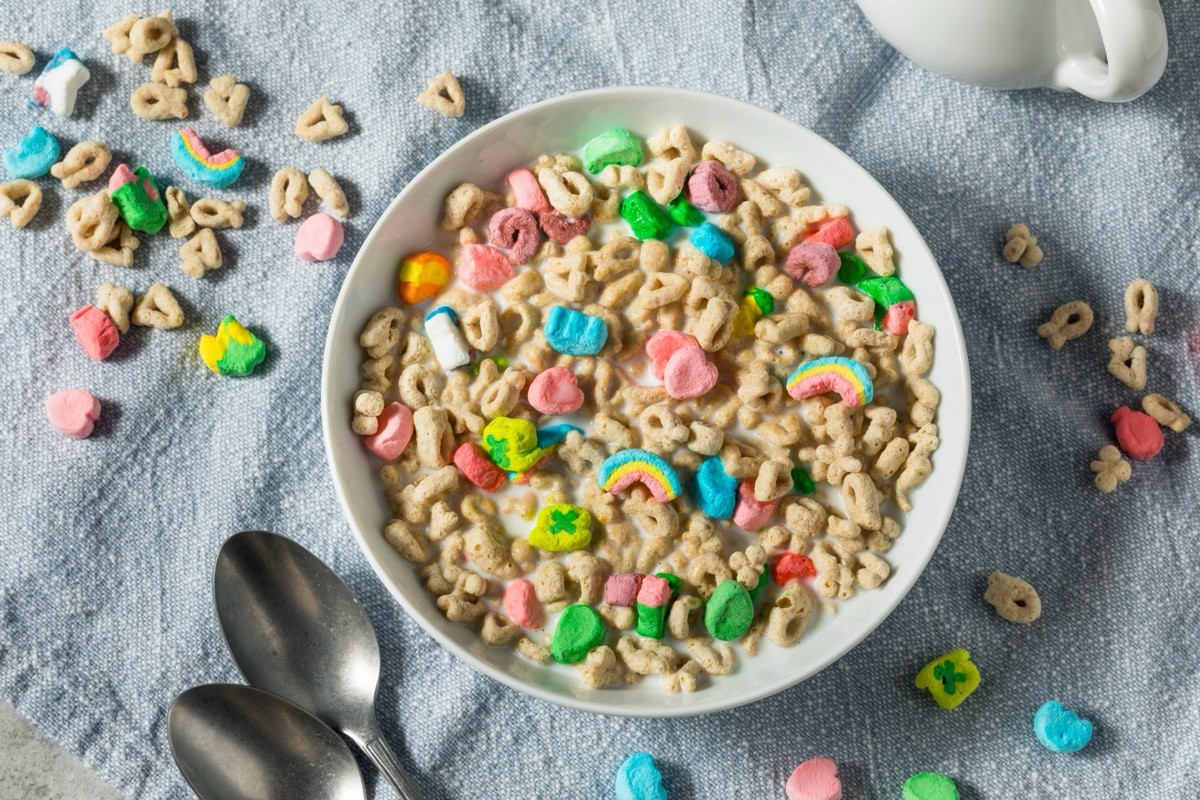
The best, most balanced breakfasts will typically include protein, healthy fats, complex carbohydrates, and plenty of vitamins and minerals—think unsweetened oatmeal topped with fresh fruit, nuts, almond milk, and chia seeds.
However, in a recent piece for CNBC Make It, Uma Naidoo, MD, a board-certified nutritional psychologist and the Director of Nutritional, Lifestyle, and Metabolic Psychiatry at Harvard, said that there’s one breakfast food she makes a point of never eating: sugary cereals.
“Walk into most grocery stores in the U.S. and you’ll find an entire aisle of cereal with jolly mascots and clever slogans grabbing the attention of consumers, especially children. But do you know what you’re really putting in your bowl every morning, and how it will—or won’t—set you up for the day?” she said.
Naidoo notes that breakfast cereals are usually made of simple carbohydrates and include “almost an entire day’s worth of added sugars.”
She continues, “Consuming this as the first meal of the day can lead to blood sugar spikes that leave us hungry just a few hours later and more inclined to reach for a sugary snack between meals. A carb-heavy breakfast can also lead to low energy, brain fog, and irritability later in the day.”
2
Soda

Soft drinks and diet soft drinks are among the most commonly consumed ultra-processed foods, polls show. However, Jinan Banna, PhD, RD, registered dietitian and professor of nutrition at the University of Hawaii, says they’re also the most important item to avoid.
“Some [ultra-processed foods] I would never consume, such as soda,” Banna told CNBC Make It. “Soda doesn’t have any nutritional value other than just calories in the form of sugar. So they’re empty calories, which don’t give us any of the nutrients that we need.”
Instead of drinking soda, she recommends drinking water, tea, and coffee in moderation.
RELATED: 6 Signs You’re Eating Too Much Protein, According to Doctors.
3
Processed meat
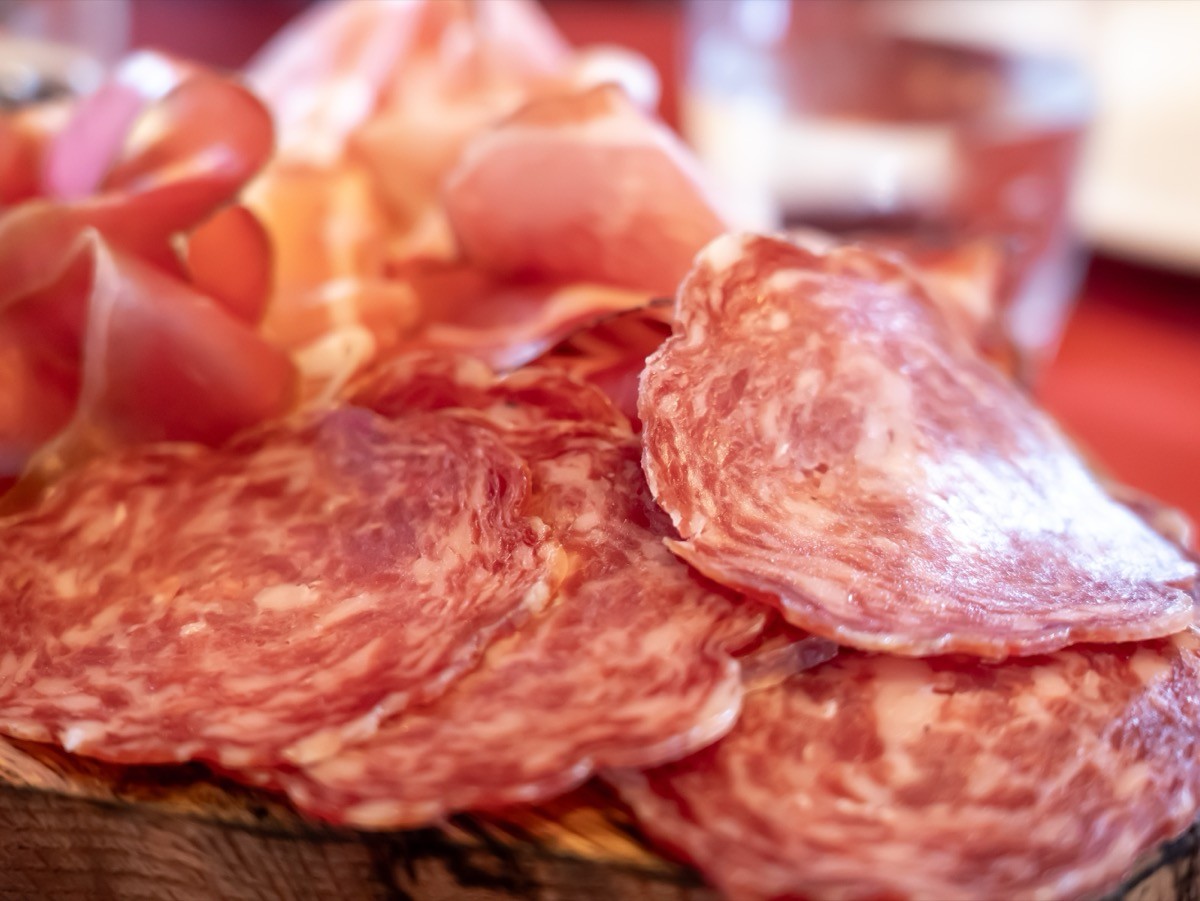
Protein is a crucial nutrient for your body that helps you build strong bones, muscles, and cartilage. It’s also important for your skin, hormones, and more. However, not all protein sources are created equally. The ideal sources are lean, unprocessed meats such as chicken, turkey, or fish, or plant-based proteins such as beans, legumes, nuts, and seeds.
Deli meats, on the other hand, are ultra-processed foods that are typically high in fat and salt. They’re also a known carcinogen since they can increase your risk of colorectal cancer, according to the U.K.’s National Health Services (NHS).
Rob Hobson, RNutr, a registered nutritionist and the author of Unprocess Your Life, says this is among the many reasons he doesn’t eat this unhealthy food. “Even before the attention on UPFs, these foods like ham and salami have been shown to increase our risk of colorectal cancer when eaten in excess,” he recently told Daily Mail.
4
Ultra-processed cheese
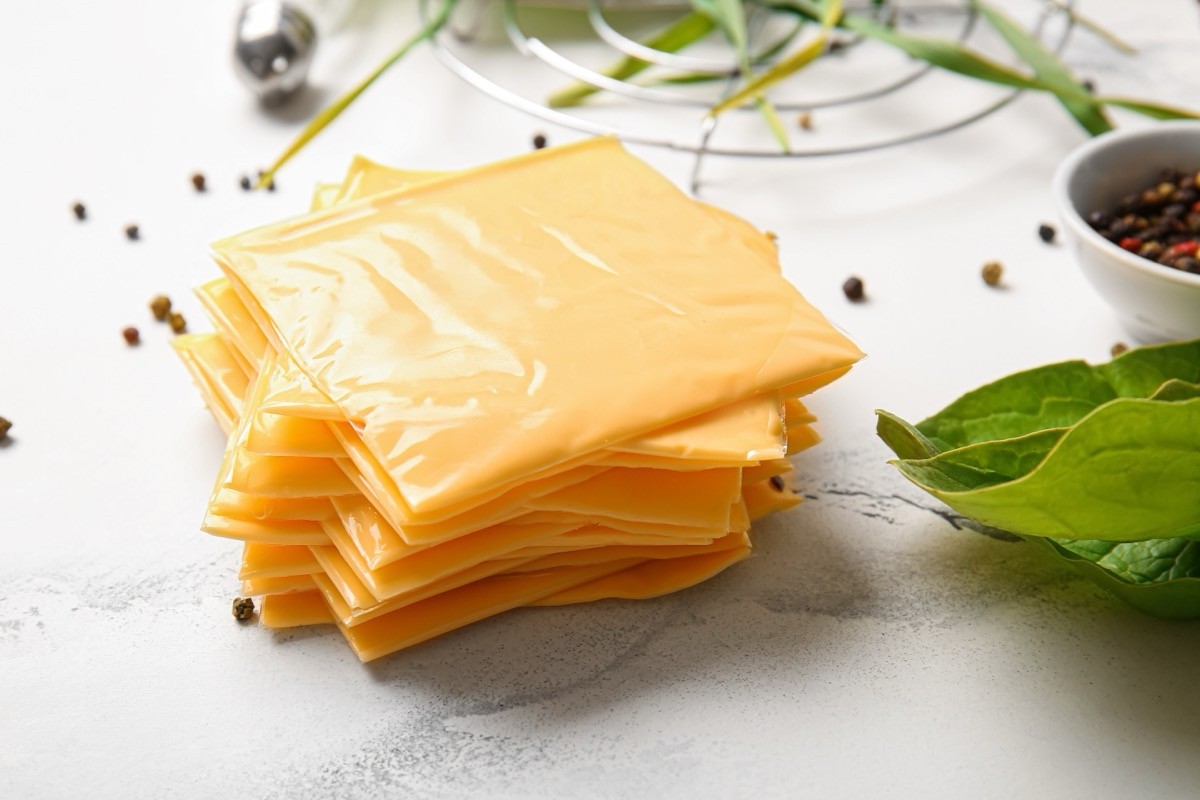
Hobson says that another food he categorically avoids is ultra-processed cheese, which he says is high in sodium and “loaded with emulsifiers used to give them the desired texture.”
“I would say just stick to real cheese slices to get the nutritional benefits in a more natural, less processed product,” he said. In particular, he recommends cheddar, feta, and brie.
RELATED: I Tried Liquid I.V. Hydration for Two Weeks & Noticed 4 Changes to My Body.
5
Pre-packaged pastries
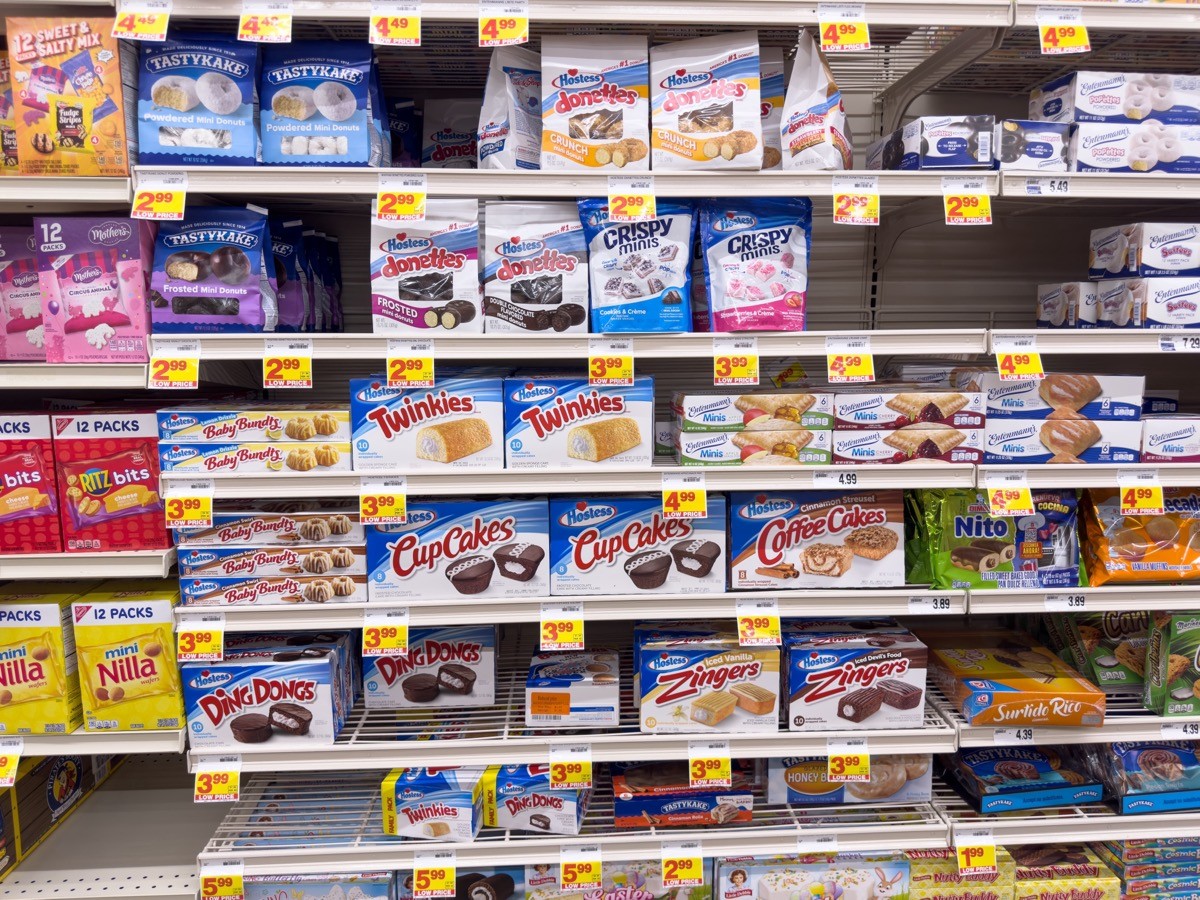
For Hobson, pre-packaged pastries, including cakes and muffins, are also banned from the menu thanks to their high levels of sugar, saturated fat, and unnatural ingredients, including emulsifiers, stabilizers, and gelling agents.
“It’s hard to find any sweet baked goods in the supermarket that are not UPF, so short of making your own, I would suggest opting for a healthier sweet treat like a pressed fruit and nut bar,” he told The New York Post.
6
Instant or canned soup
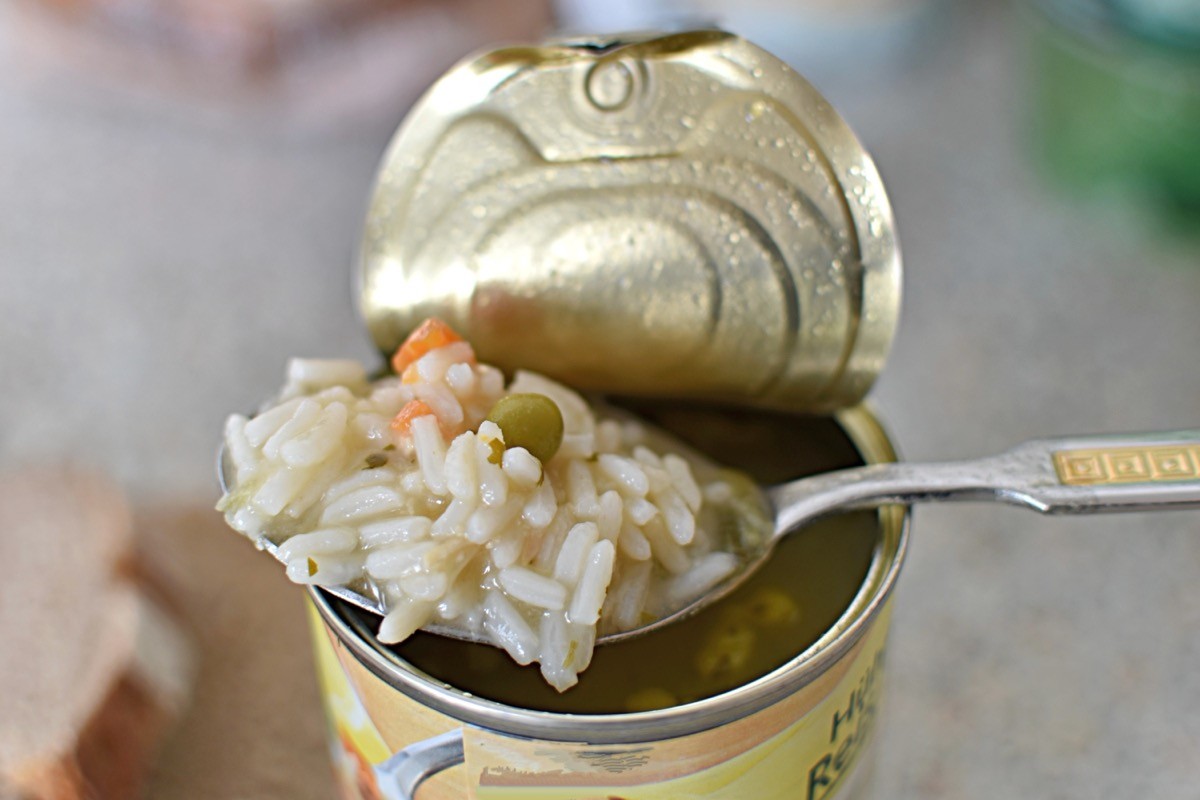
Banna says there’s another item that she considers a close second regarding the worst offending ultra-processed foods.
“I generally do not consume instant soup at all,” Banna told CNBC Make It. “It’s not something that I buy. And if I were to eat soup in general, I would prepare my own.”
The nutrition expert adds that instant soups are most often high in sodium and saturated fat, while also being low in fiber.
“In general, I would not consider instant soup a very healthy food,” she said.